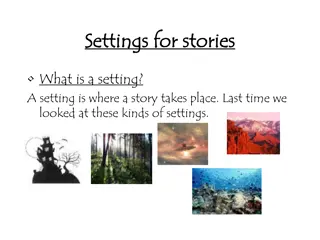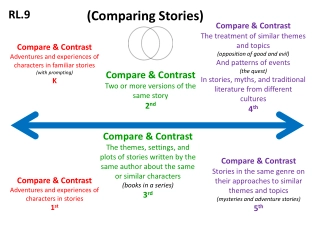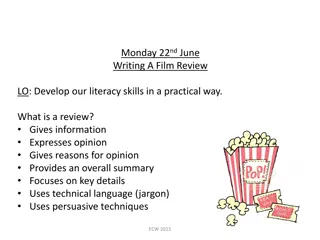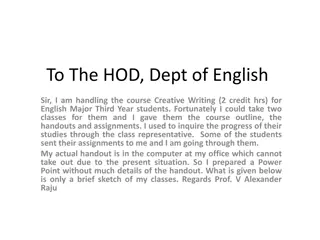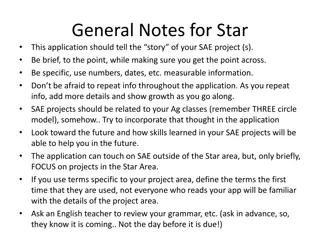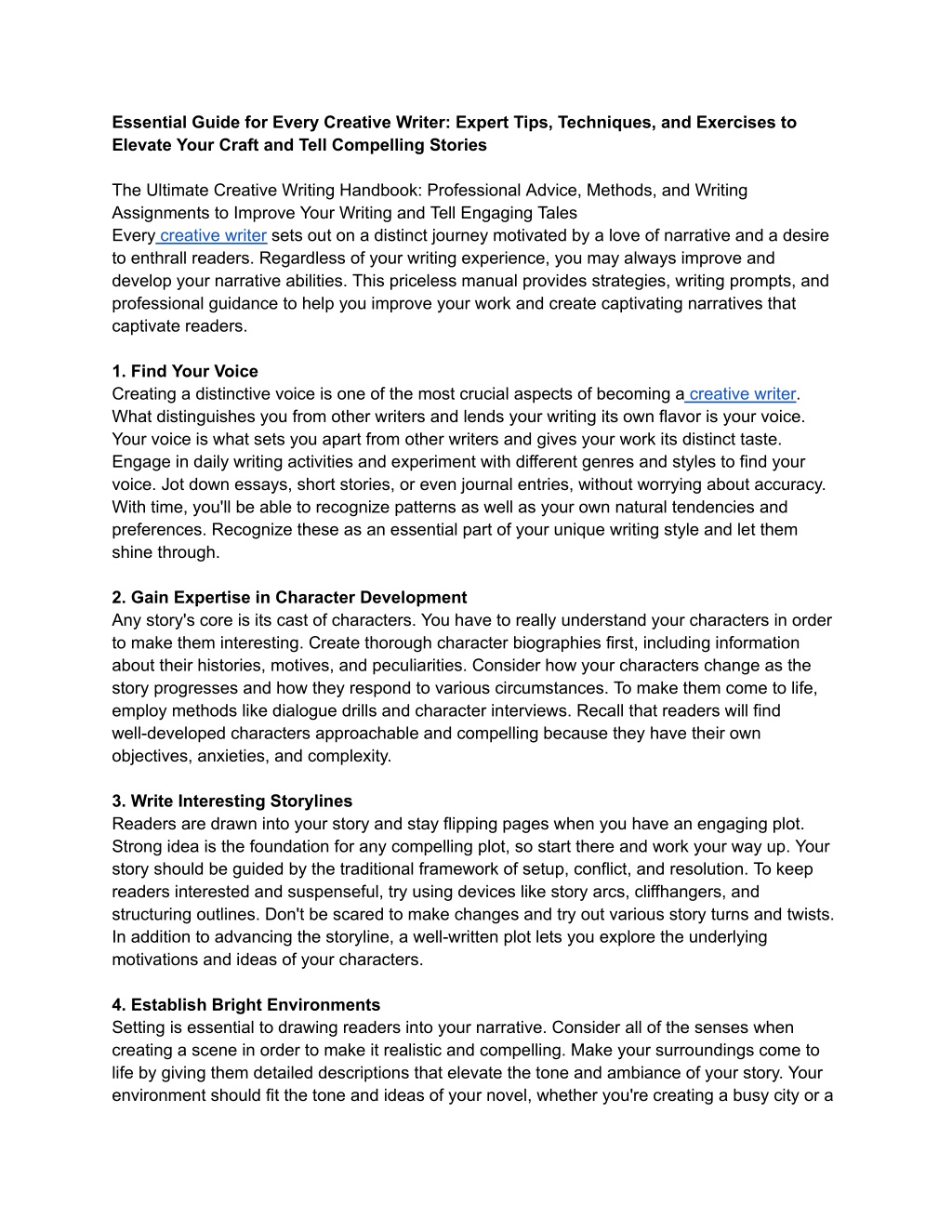
Essential Guide for Every Creative Writer_ Expert Tips, Techniques, and Exercises to Elevate Your Craft and Tell Compelling Stories
The Ultimate Creative Writing Handbook: Professional Advice, Methods, and Writing Assignments to Improve Your Writing and Tell Engaging TalesnEvery creative writer sets out on a distinct journey motivated by a love of narrative and a desire to enthr
Download Presentation

Please find below an Image/Link to download the presentation.
The content on the website is provided AS IS for your information and personal use only. It may not be sold, licensed, or shared on other websites without obtaining consent from the author. Download presentation by click this link. If you encounter any issues during the download, it is possible that the publisher has removed the file from their server.
E N D
Presentation Transcript
Essential Guide for Every Creative Writer: Expert Tips, Techniques, and Exercises to Elevate Your Craft and Tell Compelling Stories The Ultimate Creative Writing Handbook: Professional Advice, Methods, and Writing Assignments to Improve Your Writing and Tell Engaging Tales Every creative writer sets out on a distinct journey motivated by a love of narrative and a desire to enthrall readers. Regardless of your writing experience, you may always improve and develop your narrative abilities. This priceless manual provides strategies, writing prompts, and professional guidance to help you improve your work and create captivating narratives that captivate readers. 1. Find Your Voice Creating a distinctive voice is one of the most crucial aspects of becoming a creative writer. What distinguishes you from other writers and lends your writing its own flavor is your voice. Your voice is what sets you apart from other writers and gives your work its distinct taste. Engage in daily writing activities and experiment with different genres and styles to find your voice. Jot down essays, short stories, or even journal entries, without worrying about accuracy. With time, you'll be able to recognize patterns as well as your own natural tendencies and preferences. Recognize these as an essential part of your unique writing style and let them shine through. 2. Gain Expertise in Character Development Any story's core is its cast of characters. You have to really understand your characters in order to make them interesting. Create thorough character biographies first, including information about their histories, motives, and peculiarities. Consider how your characters change as the story progresses and how they respond to various circumstances. To make them come to life, employ methods like dialogue drills and character interviews. Recall that readers will find well-developed characters approachable and compelling because they have their own objectives, anxieties, and complexity. 3. Write Interesting Storylines Readers are drawn into your story and stay flipping pages when you have an engaging plot. Strong idea is the foundation for any compelling plot, so start there and work your way up. Your story should be guided by the traditional framework of setup, conflict, and resolution. To keep readers interested and suspenseful, try using devices like story arcs, cliffhangers, and structuring outlines. Don't be scared to make changes and try out various story turns and twists. In addition to advancing the storyline, a well-written plot lets you explore the underlying motivations and ideas of your characters. 4. Establish Bright Environments Setting is essential to drawing readers into your narrative. Consider all of the senses when creating a scene in order to make it realistic and compelling. Make your surroundings come to life by giving them detailed descriptions that elevate the tone and ambiance of your story. Your environment should fit the tone and ideas of your novel, whether you're creating a busy city or a
serene rural area. Employ setting to enhance the complexity of your story and to mirror the inner lives of your characters. 5. Engage in Powerful Conversation A strong technique for developing the plot and showing character is dialogue. Good conversation should have a natural flow and capture the distinct voice of each character. Instead of utilizing dialogue as an exposition or information dump, let it to flow naturally and disclose important elements through interaction and subtext. Write dialogue by envisioning and allowing your characters to speak freely during imaginary interactions. Take note of the rhythm, tempo, and the ways in which the language advances the plot and character development. 6. Include Writing Prompts Writing assignments are a great method to improve your abilities and ignite your imagination. Here are some activities to attempt: Free Writing: Assign a duration of ten to fifteen minutes and write without regard to syntax or organization. This aids in overcoming writer's block and unleashing your creativity. Ideas for Characters: Make prompts that put your characters in strange or difficult circumstances. Examine their potential responses and the ways in which these situations highlight various aspects of their personalities. Practice Dialogue: Write a scene in which two characters with diametrically opposed opinions converse. Make an effort to add energy to their conversations and bring out the underlying tensions. 7. Request Comments and Edit No matter how good you get, you can always improve with feedback. Join writing clubs, show your work to trustworthy peers, or ask mentors for criticism. Accept helpful feedback with an open mind and apply it to improve your writing. Make no mistake, the process of writing requires revisions. Don't let this deter you from writing. Accept edits as a chance to improve your narrative and make your point more clear. To sum up Learning to write creatively is an inquiry and development process. You can improve your writing and tell stories that really connect by concentrating on finding your own voice, becoming an expert at character development, generating engrossing plots, conjuring up vivid settings, and honing your dialogue skills. Develop your creativity by implementing these professional advice, methods, and activities into your daily routine. You may transform your aspirations of being a storyteller into engrossing and motivating narratives by practicing and being dedicated to the craft of writing.




